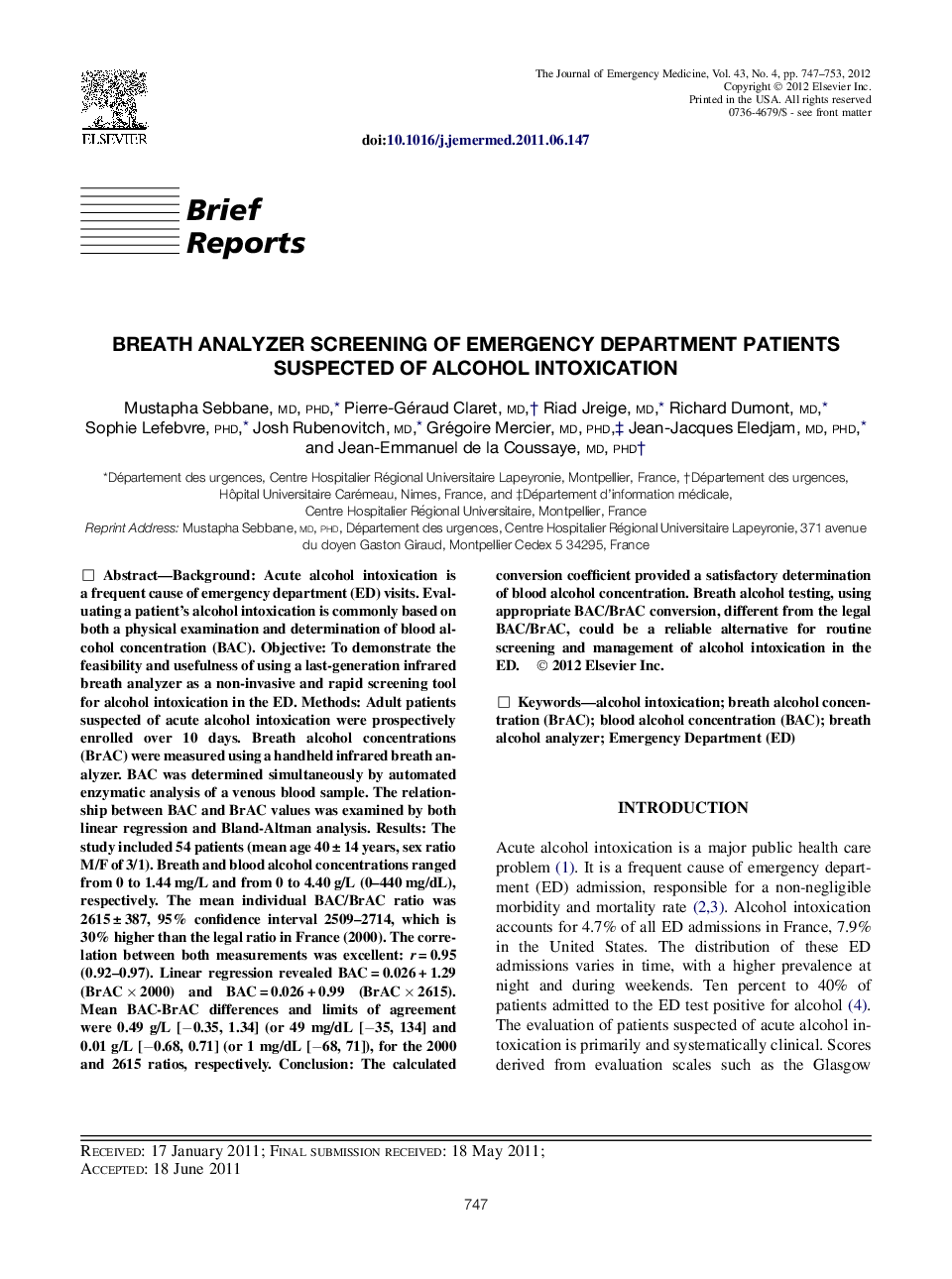| Article ID | Journal | Published Year | Pages | File Type |
|---|---|---|---|---|
| 3249013 | The Journal of Emergency Medicine | 2012 | 7 Pages |
BackgroundAcute alcohol intoxication is a frequent cause of emergency department (ED) visits. Evaluating a patient’s alcohol intoxication is commonly based on both a physical examination and determination of blood alcohol concentration (BAC).ObjectiveTo demonstrate the feasibility and usefulness of using a last-generation infrared breath analyzer as a non-invasive and rapid screening tool for alcohol intoxication in the ED.MethodsAdult patients suspected of acute alcohol intoxication were prospectively enrolled over 10 days. Breath alcohol concentrations (BrAC) were measured using a handheld infrared breath analyzer. BAC was determined simultaneously by automated enzymatic analysis of a venous blood sample. The relationship between BAC and BrAC values was examined by both linear regression and Bland-Altman analysis.ResultsThe study included 54 patients (mean age 40 ± 14 years, sex ratio M/F of 3/1). Breath and blood alcohol concentrations ranged from 0 to 1.44 mg/L and from 0 to 4.40 g/L (0–440 mg/dL), respectively. The mean individual BAC/BrAC ratio was 2615 ± 387, 95% confidence interval 2509–2714, which is 30% higher than the legal ratio in France (2000). The correlation between both measurements was excellent: r = 0.95 (0.92–0.97). Linear regression revealed BAC = 0.026 + 1.29 (BrAC × 2000) and BAC = 0.026 + 0.99 (BrAC × 2615). Mean BAC-BrAC differences and limits of agreement were 0.49 g/L [−0.35, 1.34] (or 49 mg/dL [−35, 134] and 0.01 g/L [−0.68, 0.71] (or 1 mg/dL [−68, 71]), for the 2000 and 2615 ratios, respectively.ConclusionThe calculated conversion coefficient provided a satisfactory determination of blood alcohol concentration. Breath alcohol testing, using appropriate BAC/BrAC conversion, different from the legal BAC/BrAC, could be a reliable alternative for routine screening and management of alcohol intoxication in the ED.
